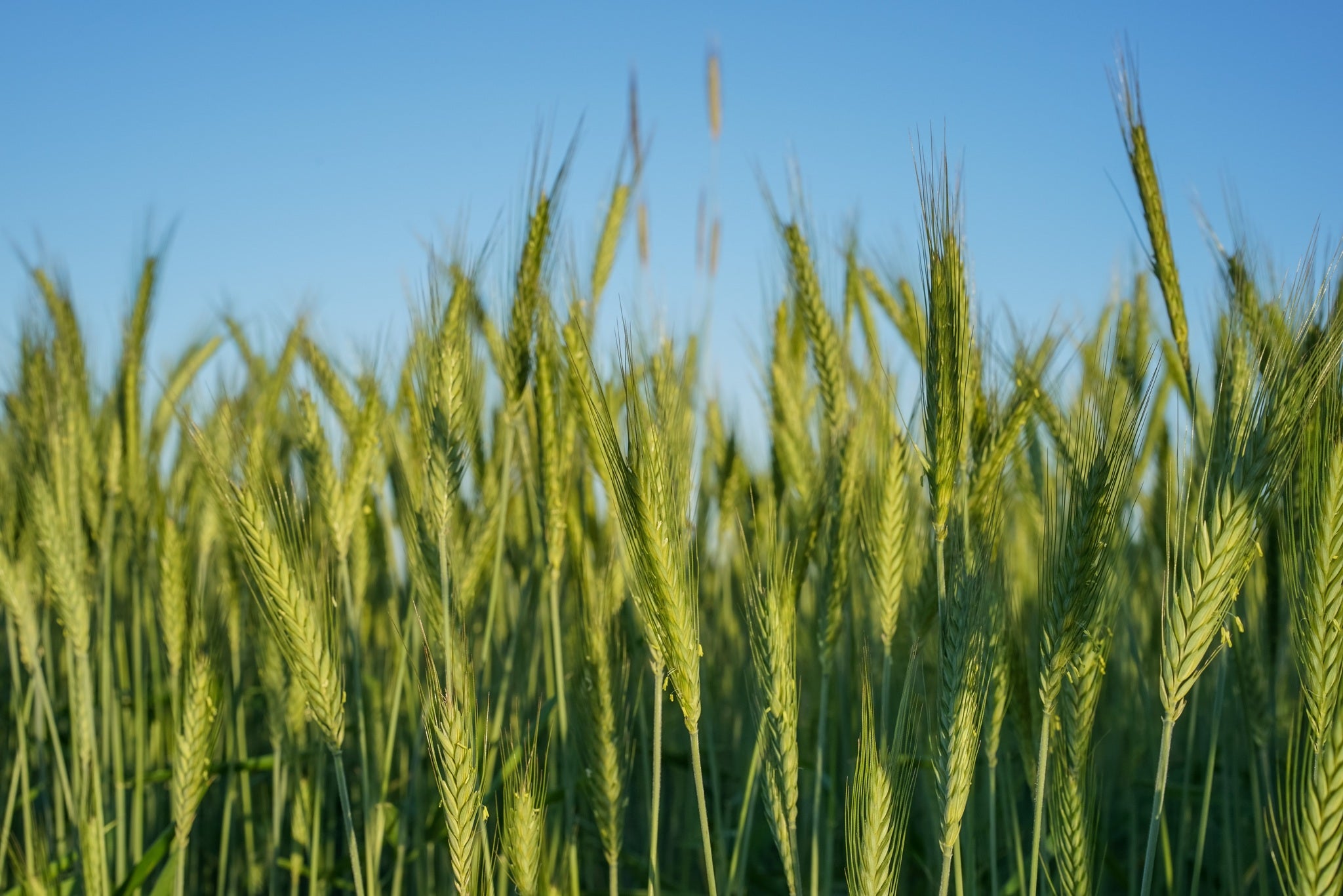
Choose Organic: A powerful way to limit your exposure to pesticides
Globally, there is increasing awareness and an ever stronger call to action to steward our planet & natural resources in a way that ensures that the needs of present & future generations are protected – and toxic agricultural chemical use in our food system directly places this at risk.
To help us dive deeper into the subject, Kendra Klein, Deputy Director of Science at Friends of the Earth U.S., takes a closer look at one of the most widely used pesticides in the history of the world – glyphosate –, and the consequences it has for our families, our communities, and the environment.
Read on to discover the truth about what goes into your food and learn how you can fight back against the use of toxic chemicals by choosing organic.”
What is glyphosate?
Chances are you've heard of a weedkiller called Roundup. The primary ingredient is a chemical called glyphosate and millions of pounds of this chemical is used across our farm fields every year. In fact, glyphosate is the most widely used pesticide in the history of the world. Never before have we sprayed so much of a chemical on our food, yards, and even children’s playgrounds. We’ve used so much of it that it is even found in rain.
But glyphosate wasn’t always so widely used. It was discovered as a weedkiller by a scientist at Monsanto in 1970. Then, in the 1990s, Monsanto scientists created GMO (genetically modified) Roundup Ready® crops that allowed farmers to spray glyphosate directly on their fields throughout the growing season, killing weeds without damaging their crops. Now, nearly all of the corn and soy that conventional farmers grow in the U.S. are Roundup Ready®, and use of glyphosate has skyrocketed.
What is the impact of glyphosate on our health?
Glyphosate has been linked to a range of serious health problems. The World Health Organization’s International Agency for Research on Cancer (IARC) has classified it as a probable human carcinogen. The connection between glyphosate and a cancer called non-Hodgkin’s lymphoma is so strong that over 100,000 people have sued Monsanto (now owned by Bayer) for their illness. These lawsuits have uncovered many company documents showing how Monsanto covered up the harm of their product for decades. A new documentary film – Into the Weeds – tells the story of the first person to win a glyphosate lawsuit against Bayer-Monsanto and the uprising he has inspired to take a stand. (The film is coming to local U.S. theaters on October 3, 2023 for a one-day exclusive screening.)
We’re not the only ones at risk. Glyphosate is also a key driver of the decimation of monarch butterflies, and the U.S. Environmental Protection Agency states that it threatens 93% of endangered species.
What can we do to protect ourselves from harmful agrochemicals?
Certified organic is the only full-scale, federally regulated approach to food production that prohibits the use of toxic pesticides and herbicides. The science is clear that organic works. An organic diet can rapidly reduce your exposure to glyphosate and many other toxic pesticides. One study found that levels of glyphosate in people’s bodies dropped 70% after just six days on an organic diet. And levels of other pesticides dropped up to 95%!
Watch Organic For All Video (approx. 2 mins)
When possible, buying organic helps support farmers who are caring for the land and our health. Whether you’re shopping at your local grocery store or farmers’ market, you can trust that the USDA organic seal guarantees food that was grown without toxic pesticides and GMOs.
5 ways you can help create a cleaner & safer food system
1. Choose organic - Organic isn’t just good for you and your family — it helps protect farmers, farmworkers and the children who live and go to school near farm fields from exposure to toxic pesticides. And research shows that it’s also good for the birds, bees, and other creatures we share the planet with. That’s because organic farmers manage pests by working with nature instead of using toxic chemicals. In fact, over 900 synthetic pesticides that are allowed in conventional farming are prohibited in organic production. And organic farmers are prohibited from using GMOs like Roundup Ready® crops.
2. Get involved in your community - You can also take action in your own home and community by connecting with others promoting pesticide-free neighborhoods and school grounds. Just search online for an organization near you.
3. Grow your own organic food if you have the space and time. Look for the OMRI seal to find certified organic soil, compost and seeds at garden stores.
4. Share with friends and family - You can also spread the word that organic helps protect our bodies and our environment by talking to your friends and family. You can find helpful information at www.OrganicForAll.org.
5. Contact your local and national policymakers, food companies and grocery stores - We can also work together to change the rules of the game and make organic the norm for all of us. We can push our policymakers to pass laws that decrease pesticide use and expand organic farming. And we can tell food companies and grocery stores to end the use of toxic pesticides in their supply chains and expand organic offerings.
To learn more about glyphosate specifically, consider checking out Into the Weeds documentary on October 3rd, and bring your friends!
To learn more about Organics and the benefits to your health, check out Friend’s of the Earth’s Top 10 Truths About Organic: https://foe.org/top-ten-truths-organic/
------------------
Kendra Klein, PhD is Deputy Director of Science at Friends of the Earth.
Friends of the Earth is the world’s largest grassroots environmental federation with 73 national member groups and millions of members and supporters around the world. Learn more about their work here: https://foe.org/
–


